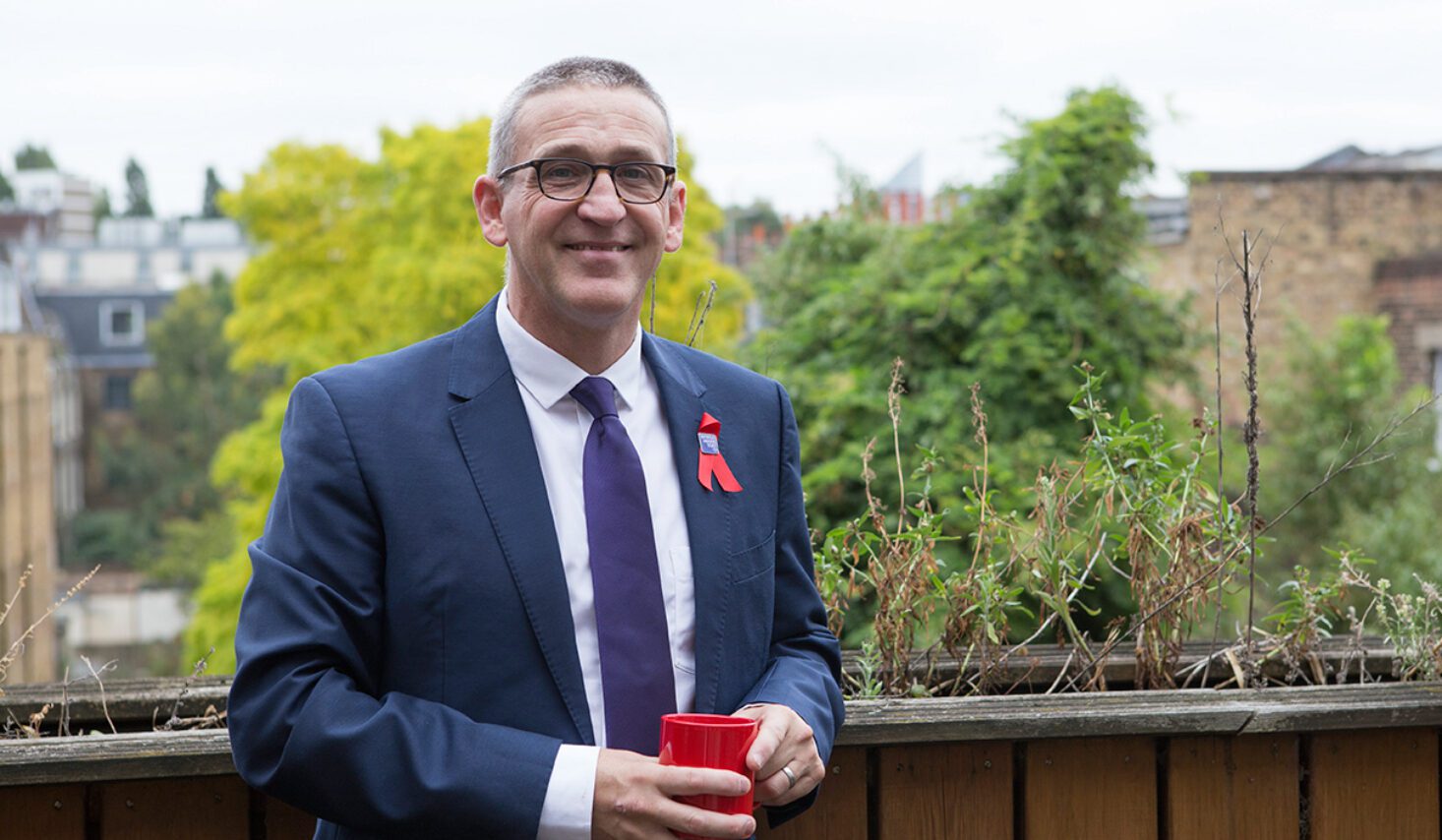
Ian Green took over as Chief Executive of Terrence Higgins Trust in 2016. He is the first Chief Executive of the charity to be openly living with HIV. World AIDS Day is a great opportunity to reflect on all that Ian has achieved and hear about his ambitions for people living with HIV.
I asked Ian to tell us about his HIV diagnosis.
I was diagnosed with HIV in 1996, coming up to over 26 years ago now. At the time I was being tested for HIV reasonably frequently, sometimes a couple of times a year. I was shocked and a bit surprised, but there was a part of me that thought this may happen. I had a sero-conversion illness and my GP was great. We did lots of tests and he eventually said let’s do a HIV test just to exclude it, but it came back positive. Twenty-six years ago, treatment was seen to extend life. I was told I might have about eight years left to live.
How did you cope with that?
For a 31-year-old, that was like having a rug pulled from under my feet. I was really fortunate that I went on a trial very early on. The side effects from the medication were awful. At times I was really struggling to adhere to the medication, with night sweats, diarrhoea, skin problems and fatigue. I needed to process myself what it was for me to be living with HIV and to think about the potential of a reduced life expectancy. I was able to have 12 sessions of counselling free of charge from Terrence Higgins Trust and it was lifesaving.
How has the situation for people living with HIV changed since your diagnosis?
There have been massive improvements in treatment, in the ability to adhere to that treatment and treatment options are wide-ranging now. I have no side-effects. I’m very fortunate – there are some people who experience side effects. I have a normal life expectancy and because the amount of virus in my blood is reduced to such a low level, because of the effective treatment, to an undetectable level, that means I can’t pass the virus on to my husband. It’s impossible for me to pass the virus on to him.
Where are there similarities?
The stigma associated with HIV is still a challenge today. A lot of that is because HIV is linked to sex. While we had the Tombstone campaign back in 1987, we’ve not had a campaign since then to actually let people know that things have changed. Stigma is something that we still need to challenge, both self-stigma from people living with HIV who often have a huge sense of shame, but also from the public and within institutions. For example, until recently someone was not able to serve in the armed forces if they were living with HIV.
What do you consider your greatest achievement since taking over as Chief Executive of THT in 2016?
It’s been the privilege of my life to lead Terrence Higgins Trust over the last seven years. My colleagues are activists who really want to ensure that people living with HIV are able to not just survive but thrive, and are passionate about ending new HIV transmissions by 2030. I am most proud of our campaigning around U=U, that means undetectable equals untransmissible, and the Can’t Pass It On campaign. We’ve been world leading and that does a huge amount to chip away at stigma.
What are your hopes for the future for people living with HIV?
One is that people don’t have to face stigma, that they are able to live their lives without the fear of persecution or discrimination. Encouraging people to get tested, that HIV testing is normalised. It’s fantastic news that now there’s opt-out testing in Accident and Emergency departments in London, Manchester, Blackpool and Brighton and already there’s been over 100 people diagnosed with HIV through opt-out testing. We know that if someone is diagnosed early and gets onto treatment their prognosis is really good. My real hope is that over the next five to 10 years, people living with HIV get all the support they need to thrive and also that we are grasping that prize to end new HIV transmissions by 2030.
Do you have a short message for our readers for World AIDS Day?
I want to say to the readers of GAY TIMES thank you for all your support over the years. I would encourage you to wear your red ribbon with pride on World AIDS Day and just reflect on how far we’ve come over the last 40 years. HIV is no longer a death sentence and someone living with HIV on effective treatment can’t pass the virus on. If you don’t know your HIV status – I encourage people to get tested. For GAY TIMES readers living with HIV, I would say you are not alone, don’t feel isolated. You don’t need to be on the journey with HIV on your own.
You can follow Terrence Higgins Trust here on Twitter.
You can follow Ian here on Twitter.



